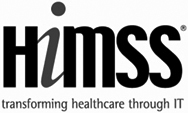Transforming Behavioral Health Care in Oregon
through Information Technology Forum
Best Practices, Challenges and Lessons Learned
AGENDA
| 8 – 9 a.m. | Registration and Continental Breakfast |
| 9 – 9:10 a.m. | Welcome/Opening Remarks – Erick Maddox, Executive Director, Reliance eHealth Collaborative |
| 9:10 – 9:50 a.m. |
Transforming Health Care Delivery in Oregon through Technology and Robust Health Information Exchange – Susan Otter, Director of Health IT, Oregon Health Authority |
| 9:50 – 10:30 a.m. |
Bridging the Information Divide: Integrating Behavioral and Physical Health Information for Patient-Centered Care – Gina Bianco, Consultant for Reliance eHealth Collaborative |
| 10:30 – 10:45 a.m. | Break, Networking and Consent Model Demonstrations |
| 10:45 – 11:30 a.m. |
Overcoming Challenges: Legal and policy stands in the way of electronic behavioral health information exchange; learn how these organizations worked to break down barriers and solve workflow challenges – Ed Smith Burns, La Clinica; Richard Rose, Klamath Basin Behavioral Health; Ralph Summers, PacificSource; and Danni Swafford , Addictions Recovery Center |
| 11:30 a.m. – 12:15 p.m. | The Value of Integrated Care: Health and social service providers discuss the value of having access to behavioral health information to better treat the whole person and coordinate care – Laurel Brown (Birch Grove Clinic); Janet Hamilton, Project Access Now and Paul Matz, MD, Providence Medical Group |
| 12:15 – 1:30 p.m. |
Lunch and Debut of Consumer Education Video Reactor Panel: Best Practices for Providing Informed Consent – Kayla Sells, Deschutes County Healthy Department and Ramona Ropek, Mid- Columbia Center for Living |
| 1:30 – 1:45 p.m. | Break and Transition to Roundtable Discussions |
| 1:45 – 3:15 p.m. | Roundtable Discussions (Four 20-Minute Sessions) |
Track 1: Clinical and Policy |
Track 2: Data and Technology |
| The Certified Community Behavioral Health Clinic (CCBHC) Model: Lessons learned so far and how it will inform the future of BH in Oregon – Stan Gilbert, Klamath Basin Behavioral Health; and Ramona Ropek, Mid-Columbia Center for Living |
How HIE in Oregon benefited from Federal funding to support a transformed health care system through common consent, VA and PDMP connectivity; clinical notifications, and population health reporting – Susan Otter, Oregon Health Authority and Gina Bianco, Reliance eHealth Collaborative |
| Legal and Policy mechanics of exchanging 42 CFR Part 2 protected information through a health information exchange – Ed Smith Burns, LaClinica and Sarah Matthews, Reliance eHealth Collaborative | Role of HIE /HIT plays in informing coordinated and value-based care models; how BH organizations use data to develop innovative, outcome based models of care – Brandon Gatke, Cascadia Behavioral Health |
| No EHR? No Problem! Learn best practices for using HIE to achieve patient-centered care, gain workflow efficiencies and improve care coordination across the care continuum – Danni Swafford, Addictions Recovery Center and Mariela Owen, Reliance eHealth Collaborative | Best practices for working with EHR vendors to exchange information and overcome challenges (e.g. technical capabilities, required legal agreements, negotiating costs) – Michael Thomas, Mosaic Medical and Paula Weldon, Reliance eHealth Collaborative and others |
| Understanding OHA’s Behavioral Health Collaborative Blueprint for creating a 21st Century BH system; provide feedback and recommendations – Michael Morris, OHA Addictions and Mental Health Division | HIT/HIE within Oregon’s BH landscape: adoption, use, needs, and barriers. Learn about OHA’s Toolkit and give feedback and recommendations for funding and policy considerations – Marta Makarushka, OHA Office of Health IT and Veronica Guerra, OHA Department of Human Services |
| 3:15 – 4:15 p.m. | The promise of HIE: A Use Case for fully integrated health services to achieve outcomes based patient-centered care |
| 4:15 – 4:30 p.m. | Wrap up and Call to Action |



